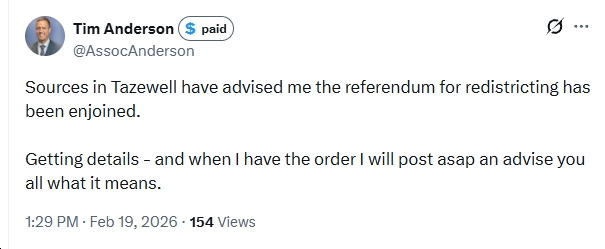House bill and inaction on enhanced ACA subsidies to take away health coverage from roughly 16 million nationally and make food unaffordable for many, while giving tax handouts to the wealthy
Richmond, Va. — The bill passed by the U.S. House, now being considered by the Senate, would take away health insurance from roughly 16 million people across the country by actively imposing new barriers to health coverage and failing to extend current policies that make buying insurance in the ACA Marketplace more affordable, according to new estimates by the Congressional Budget Office (CBO). The updated estimates were released on June 4 and are included in a new report from The Commonwealth Institute (TCI) that summarizes the impacts of the House’s bill in the areas of health care, food assistance, and taxes.
“The latest CBO estimates further underscore how devastating the choices being rushed through by House leadership would be for our communities,” says Freddy Mejia, Policy Director at The Commonwealth Institute. “Additional estimates show that this rush to rip away health care, for example, will harm older adults, people with disabilities, and children across the commonwealth, in addition to working families who are paid too little to afford private insurance. The Senate must reject these harmful choices and make real improvements to programs like Medicaid and SNAP that help families meet their basic needs.”
New data included in TCI’s report shows that 277,000 people in Virginia will be kicked off of Medicaid coverage in 2028, including roughly 2,500 adults age 65 and older, 500 people with disabilities, and 11,000 children.
The House bill would also take money out of the pocket of every Virginia family who gets help paying for food through the Supplemental Nutrition Assistance Program (SNAP) through a variety of provisions. It also imposes new paperwork burdens, such as making calculations of utility deductions more complicated and expanding the work requirement to families who are currently exempt because they have school-age children, live in areas with limited job opportunities, or are at an age when working many jobs becomes physically impossible. The bill is expected to harm children the most, given that families with children make up 2 out of 3 households that receive SNAP benefits.
The tax choices included in the bill would not offset the impact of taking away health coverage and food assistance from families struggling to make ends meet, because the House’s plan is significantly skewed to benefit the wealthy. In 2026, Virginia families in the bottom 20% of incomes, making less than $31,000 a year, will see an average tax cut of $100. Meanwhile, Virginia households with the highest incomes, making $843,100 or more a year, will see an average tax cut of $78,100 — about 4.8 times the average annual income for a family in the bottom 20% of incomes ($16,300).
The full report, “Virginia Impact Report: How the House Reconciliation Bill will Impact Our Communities,” can be found at www.TheCommonwealthInstitute.org.





![Thursday News: “Europe draws red line on Greenland after a year of trying to pacify Trump”; “ICE Agent Kills Woman, DHS Tells Obvious, Insane Lies About It”; “Trump’s DOJ sued Virginia. Our attorney general surrendered”; “Political domino effect hits Alexandria as Sen. Ebbin [to resign] to join Spanberger administration”](https://bluevirginia.us/wp-content/uploads/2026/01/montage010826.jpg)












